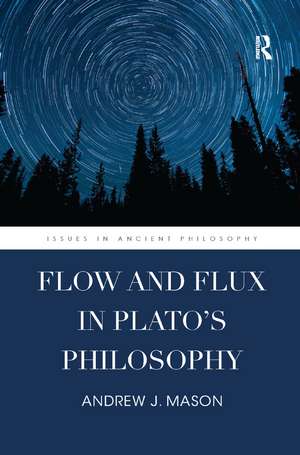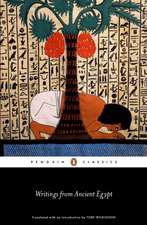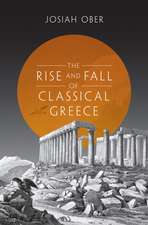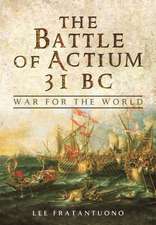Flow and Flux in Plato's Philosophy: Issues in Ancient Philosophy
Autor Andrew J. Masonen Limba Engleză Paperback – 12 dec 2019
The opposition between the ‘being’ of Forms and the ‘becoming’ or ‘flux’ of sensibles has been fundamental to the understanding of Plato from Aristotle to the present day. One key concern of this volume is to clarify which kinds or levels of flux Plato accepts in sensibles. In addition, Mason argues that this traditional approach is unsatisfactory, as it leaves out the important notion of flow. Unlike flux, flow is a kind of motion that does not entail intrinsic change. It is also not restricted to the sensible, but covers motions of soul as well, including the circular motion of nous (intelligence) that is crucial in Plato’s later thought, particularly his cosmology. In short, flow is not incompatible with ‘being’, and in this study Plato’s development is presented, largely, as his arrival at this view, in correction of his earlier conflation of flux and flow in establishing the dichotomy between being and becoming.
Mason’s study offers fresh insights into many dialogues and difficult passages in Plato’s oeuvre, and situates Plato’s conception and usage of ‘flow’ and ‘flux’ in relation to earlier usage in the Greek poetic tradition and the Presocratic thinkers, particularly Heraclitus. The first study of its kind, Flow and Flux uncovers dimensions of Plato’s thinking that may reshape the way his philosophy is understood.
| Toate formatele și edițiile | Preț | Express |
|---|---|---|
| Paperback (1) | 272.50 lei 6-8 săpt. | |
| Taylor & Francis – 12 dec 2019 | 272.50 lei 6-8 săpt. | |
| Hardback (1) | 1054.75 lei 6-8 săpt. | |
| Taylor & Francis – 14 mar 2016 | 1054.75 lei 6-8 săpt. |
Preț: 272.50 lei
Preț vechi: 326.49 lei
-17% Nou
Puncte Express: 409
Preț estimativ în valută:
52.15€ • 56.63$ • 43.81£
52.15€ • 56.63$ • 43.81£
Carte tipărită la comandă
Livrare economică 22 aprilie-06 mai
Preluare comenzi: 021 569.72.76
Specificații
ISBN-13: 9780367873189
ISBN-10: 0367873184
Pagini: 228
Dimensiuni: 156 x 234 mm
Greutate: 0.45 kg
Ediția:1
Editura: Taylor & Francis
Colecția Routledge
Seria Issues in Ancient Philosophy
Locul publicării:Oxford, United Kingdom
ISBN-10: 0367873184
Pagini: 228
Dimensiuni: 156 x 234 mm
Greutate: 0.45 kg
Ediția:1
Editura: Taylor & Francis
Colecția Routledge
Seria Issues in Ancient Philosophy
Locul publicării:Oxford, United Kingdom
Cuprins
Introduction 1. Everflowing being in the Laws 2. The pursuit of flow via etymology in the Cratylus 3. The aporia at the end of the Cratylus, and the implicit reduction of flow to flux 4. Flow and the Form of Beauty in the Phaedrus 5. Flux and flow in the Timaeus 6. The problem of natural catastrophe in the late dialogues 7. Plato and the problem of natural justice Appendix: On the relative dates of the dialogues
Notă biografică
Andrew J. Mason holds a PhD in Philosophy from Macquarie University, Australia. He was previously a lecturer at Griffith University and Macquarie University.
Recenzii
Andrew J. Mason’s book systematically develops the compelling idea that the early and middle Plato conflates flow and flux when opposing the changing world of sensible things to what truly is: while flow can be characterized as the continuous, directed motion and change of something, flux indicates a chaotic, intrinsic alteration that transform some fleetingly existent thing into something else. In the late Plato Mason finds traces of such a distinction that also show that only flux, but not flow, is incompatible with being. Mason’s investigation is very rich in its wide scope: not only does he look at a broad range of Platonic dialogues, and at the linguistic, cosmological, as well as ethical dimension of the distinction between flow and flux, he also persuasively situates Plato’s usage of the words "ῥοή" and "ῥέω” in the wider context of Pre-Platonic philosophers and poets.
- Barbara Settler, St. Andrews, UK
- Barbara Settler, St. Andrews, UK
Descriere
This study argues that traditional approaches to Plato's thought, which centre on Forms and their opposition to sensible flux, leave something essential out of account. There is in Plato a notion of ‘flow’ which is distinct from material ‘flux’. It applies both to souls and concrete sensible things (including the cosmos), is compatible with rath





























